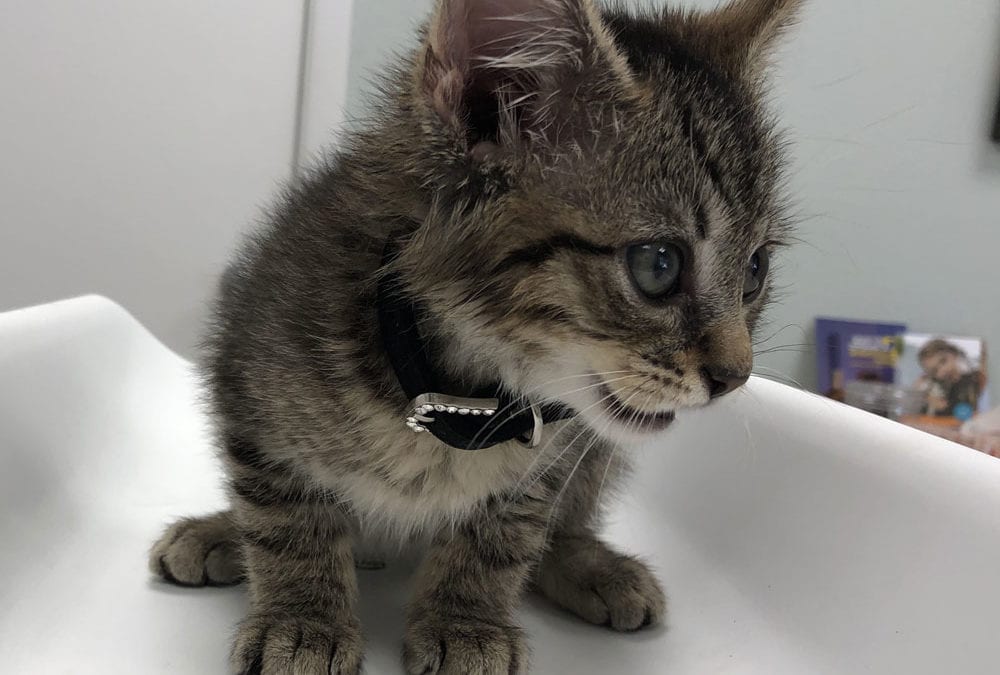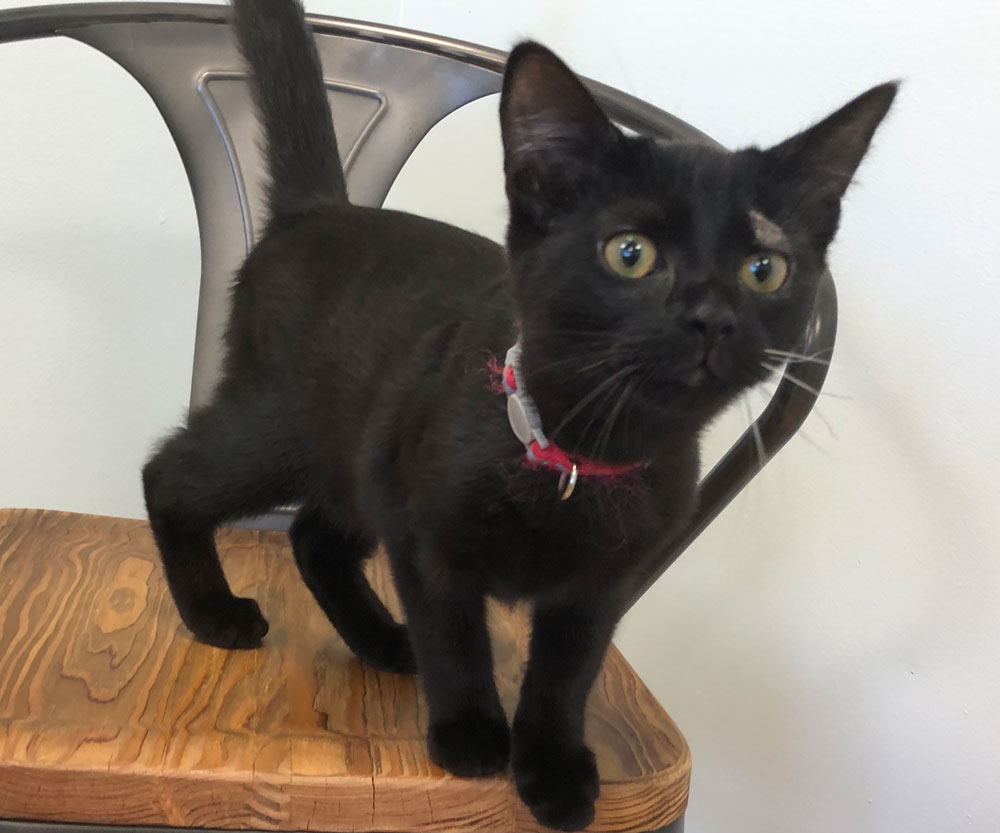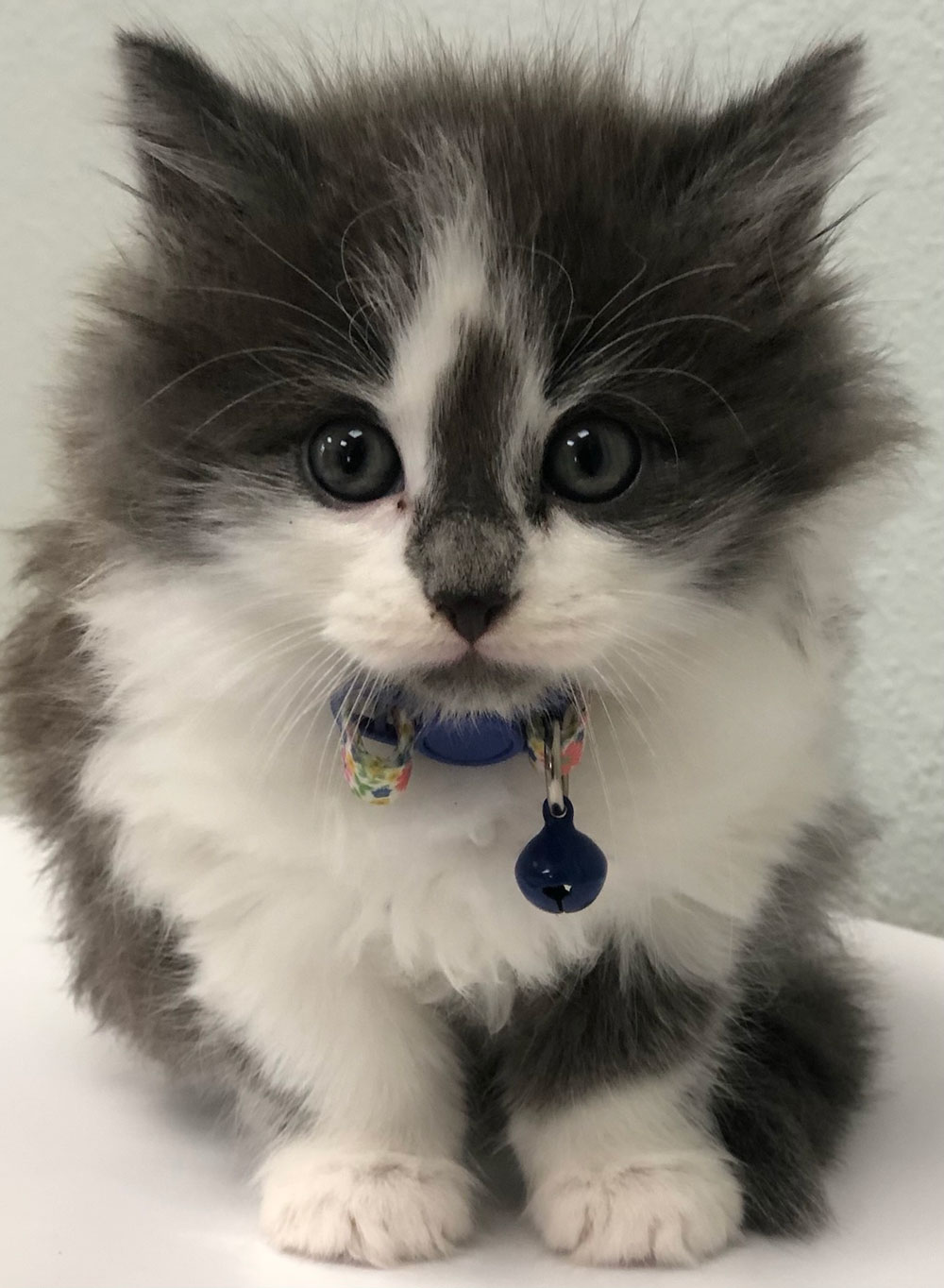• At every visit we weigh your pet. We are keeping a record of this throughout your pets life. Of course as your kitten grows we need to track their size, but even as adults weight is an important part of health. Sudden changes in weight can help alert us to other medical issues.
• A technician will talk to you about your pet, and any concerns or questions you might have. They will go over what your pet is visiting the clinic for and can explain what tests and procedures your pet will be receiving. They will also assist your doctor with your pets exam and any necessary treatment.
• At many visits we run some tests to make sure your pet is healthy. These include things like a parasite screening. Parasites are very common in kittens, and they will usually need to be dewormed a few times in the early weeks of life. You can bring a fresh stool sample to the visit if possible, or we can send you home with a cup which you can use to collect one.
• It is recommended your kitten have a blood test to check for FIV (Feline Immunodeficiency Virus) and Feline Leukemia. These are 2 diseases that are very common in cats and require special care through life. Cats can often live happy lives with these diseases as long as we know they have them.
• Your veterinarian will give your pet a complete exam, from their teeth all the way to the tail. They will feel your pet for any lumps or bumps, they will listen to their heart and lungs, check their eyes, ears and skin.
• We are here to help you, don’t ever be afraid to ask any questions you might have! Use resources like PetDesk to schedule appointments, ask questions and more!
Vaccines: What is your kitten getting?
FVRCP is the Feline Viral Rhinotracheitis, Calicivirus and Panleukopenia. Your kitten will receive this vaccine at 6-8 weeks, 10-12 weeks, and 14-16 weeks of age (depending on age vaccines begin)
Rhinotracheitis is triggered by feline herpes virus and causes upper respiratory infections
Calicivirus is also an upper respiratory virus and causes ulcers in the mouth. It can result in serious complications, like pneumonia.
Panleukopenia is an extremely common viral infection. It causes fever, vomiting and diarrhea and can rapidly turn fatal
Rabies- At around 14 weeks of age your kitten will receive a rabies vaccine. Rabies is a viral disease that affects the brain and spinal cord. It leads to a variety of symptoms, including foaming at the mouth, aggression, and paralysis. Rabies is zoonotic, which means it can be spread to humans through contact with an infected animals saliva, usually through a bite wound. It is always fatal once symptoms have started. Luckily we can prevent this terrible disease with a vaccine. This is considered a core vaccine and is the only vaccine that is required by law for your pet to have. Failure to keep your pet licensed and current on rabies can lead to fines and possible impoundment of your pet.
Leukemia- If your cat will be spending any time outdoors it should also receive a Feline Leukemia vaccine. FeLV is a highly contagious disease that can drastically shorten a cats lifespan. It will be given at your kittens second and third pediatric visit.
**At Family Pet Health we use PUREVAX feline vaccines. These vaccines do not contain ingredients that are thought to contribute to injection site issues, such as chronic inflammation, sarcomas and injection site reactions
Other vaccine notes:
Vaccine reactions are rare, but they can happen. In extreme cases, if your pet experiences difficulty breathing, swelling of the face or neck, or loses consciousness at any time contact us, or an emergency clinic, immediately. This is rare but extremely serious, and will usually occur within an hour or two of vaccination. Other milder reactions can include things like swelling at the injection site, soreness, lethargy, mild elevation in temperature, etc. It is best to observe your pet for at least 12 hours after receiving vaccines, and if you feel any of these symptoms are concerning, call us and we can discuss what to do to make your pet comfortable.
Microchipping- microchipping your pet is recommended! Often we microchip at the same time as the pets spay/neuter, but we can do the procedure at any time.
Spay/Neuter- we recommend spaying or neutering your pet at about 6 months of age, but some pets have different needs. We can discuss this in detail at your pet’s next visit.
Our goal is to keep your pet healthy and to educate you about your newest family member. We are happy to discuss any concerns and answer any questions you have about your pet’s health care! Reach us by phone at 615-907-8387 or by utilizing the PetDesk app.




